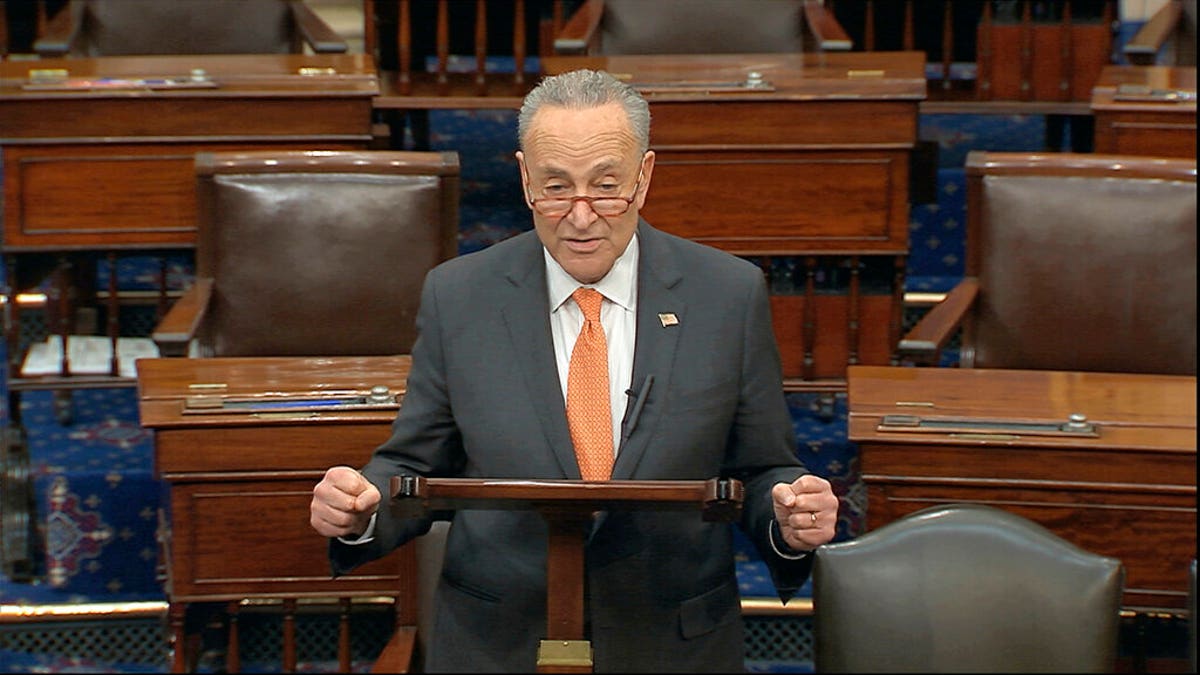How Senate's coronavirus bill boosts unemployment aid
Senate Republicans and Democrats, along with the White House, have come to an agreement on a bill to aid Americans dealing with the economic effects of the coronavirus pandemic. Here's how the new stimulus package can expand unemployment aid if enacted by President Trump.
Get all the latest news on coronavirus and more delivered daily to your inbox. Sign up here.
On early Wednesday morning, Senate Democrats, Senate Republicans and the White House came to an agreement on a $2 trillion economic stimulus package meant to combat the economic effects of the coronavirus pandemic, setting the measure up for a likely vote in the Senate and potential enactment later this week.
Leaders from both parties focused on ensuring that the bill, at least in part, targeted average Americans dealing with hardship related to the widespread economic slowdown resulting from stay-at-home orders and social distancing guidelines meant to stem the spread of the pandemic in the United States. One of those measures beefs up unemployment insurance in an effort to ease the sting on workers who are getting laid off because their businesses are closed.
Here's how the proposal, which Senate Minority Leader Chuck Schumer, D-N.Y., called "unemployment insurance on steroids" early Wednesday, will work if signed into law by President Trump.

In this image from video, Senate Minority Leader Chuck Schumer, D-N.Y., speaks on the Senate floor at the U.S. Capitol in Washington, Saturday, March 21, 2020. (Senate Television via AP)
Time
The Senate bill, if enacted, would give Americans four months of unemployment insurance, an increase from the current three months. Schumer said the change "ensures that laid-off workers, on average, will receive their full pay for four months."
Businesses
Schumer also indicated that the unemployment insurance expansion would not just cover individuals who fall under the typical definition of an employee.
"It ensures that all workers are protected whether they work for businesses small, medium or large, along with self-employed and workers in the gig economy," Schumer said on Wednesday morning,
Because the final text of the bill has not been released yet, it is unclear how exactly the unemployment benefits will apply to non-traditional workers or if they would get benefits the same exact way as typical employees under the Senate's scheme.
Money
Workers who file for unemployment will be able to receive up to $600 per week more than what is currently on the books. This is likely to help Americans who may make more money in their jobs – and thus may have higher expenses – but are temporarily unable to work due to the coronavirus.
CLICK HERE TO GET THE FOX NEWS APP
Sunset
Schumer seemed to indicate that the "unemployment insurance on steroids" would be rolled back as soon as the coronavirus pandemic is not a threat to Americans.
"Because Democrats insisted on these changes, the assistance to working Americans is not just a one-shot deal, but a paycheck every work period that will go on for as long as the crisis lasts," Schumer said. "We are giving America’s workers some peace of mind, knowing that they will continue to have an income, and it will be there until we defeat this horrible virus."




